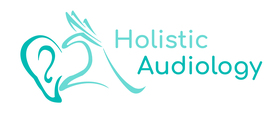Abilities & Quality of Life
‘I hear, but don’t understand.’
‘Huh, what did you say?’
‘Can you repeat?’
Hearing loss and related ear disorders can pose substantial negative impacts on the quality of life of the affected individual and their family and significant others. Aural Rehabilitation (AR) aims to minimise the negative effects of hearing loss on daily life. AR takes into account the individual’s interpersonal, psychosocial and educational functioning, among other factors. The goal is to teach the client how to live with and manage their hearing loss, while helping them to maintain a high quality of life and improve their quality of life. Aural rehabilitation (AR) is also referred to as audiologic rehabilitation, auditory rehabilitation, hearing rehabilitation, and rehabilitative audiology.
AR Assessment
An AR assessment seeks to identify the impact of hearing loss and other auditory complaints; such as, tinnitus and auditory processing disorder (APD) on communication, activities, participation, interactions with communication partners, and one’s quality of life. Assessment may be ongoing or periodic depending on the person’s evolving needs and goals, and ideally at the initiation of device use (e.g., hearing aids, cochlear implants). Assessment may result in a recommendation for a variety of AR therapies or referral to other professionals.
Aural Rehabilitation Care Plan
Aural Rehabilitation (AR) encompasses a wide set of practices aimed at optimising a person’s hearing and communication abilities to participate in activities that have been limited as a result of hearing loss. AR sessions at Holistic Audiology are individualised based on the client’s strengths and areas of difficulty. Areas addressed include sensory management, auditory training, communication strategies, and counselling.
- Sensory Management
Sensory management aims to reduce or eliminate the deficit resulting from anatomic or physiologic damage to the hearing organ. Aside from hearing aids, cochlear implants and bone-anchored implants, individuals may benefit from assistive listening devices (ALD). Some common ALDs include:
- Remote microphones
- FM and sound field systems
- TV headsets
- T-coils and loop systems
- Alerting devices, e.g. flashing doorbell ringer, vibrating alarm clock.
- Auditory Training
Individuals who have a hearing aid or implantable device can often benefit from improving their listening skills to enhance personal, professional and social communication; as well as, safety awareness. These skills can be addressed with auditory training.
- Communication Strategies Training
The ability to use communication strategies is of tremendous value in everyday life. Understanding and using communication strategies can assist with planning for and managing potential communication challenges ahead of time. Elements of communication strategies training can include:
- Anticipatory strategies
- Conversational repair strategies
- Environmental strategies
- Listening strategies
- Awareness and use of visual cues.
- Counselling
Effective counselling is paramount to supporting clients understand their hearing loss or related ear disorder, and its associated symptoms; manage and navigate the educational and vocational implications of hearing loss and related ear disorders; as well as, address the client’s psychosocial challenges stemming from their ear or hearing disorder.
Benefits of Aural Rehabilitation
AR is analogous to the physical therapy and rehabilitation needed by an individual that has received a prosthetic leg. Some researchers have suggested that as hearing loss is an ‘invisible impairment’, few perceive it to be a significant impairment requiring investment of time and resources. Additionally, AR services are less tangible than purchasing a hearing device, therefore the importance of aural rehabilitation is often overlooked.
Aural rehabilitation can reduce one’s perception of hearing difficulties, improve one’s perception of quality of life, help one to become a more effective user of hearing technology and communication strategies, and improve one’s personal adjustment to living with hearing loss.
The benefits of using comprehensive AR practices have been shown to be significant, though remains significantly under-utilised, according to literature. The holistic approach to ear and hearing health, incorporates the need for aural rehabilitation. Ignoring the importance and benefits of AR, robs clients of the opportunity for optimal ear, hearing and communication abilities; and potentially creating a barrier to optimal quality of life.
Hearing Better Together at Holistic Audiology
Our Readers Also Like…
Did you know that hearing loss is the number one risk factor for dementia? Studies suggests treating hearing loss may reduce dementia.
REFERENCES:
Boothroyd A. (2007). Adult aural rehabilitation: What is it and does it work? Trends in amplification, 11(2), 63–71. https://doi.org/10.1177/1084713807301073
Lin, F. (2013). Hearing Loss and Aging. In M.B. Goldman, R. Troisi & K.M. Rexrode (Eds.), Women and Health (pp. 1449-1462). Academic Press. https://doi.org/10.1016/B978-0-12-384978-6.00098-4
Sweetow, R. W., & Sabes, J. H. (2007). Technologic advances in aural rehabilitation: Applications and innovative methods of service delivery. Trends in Amplification, 11, 101–111.

